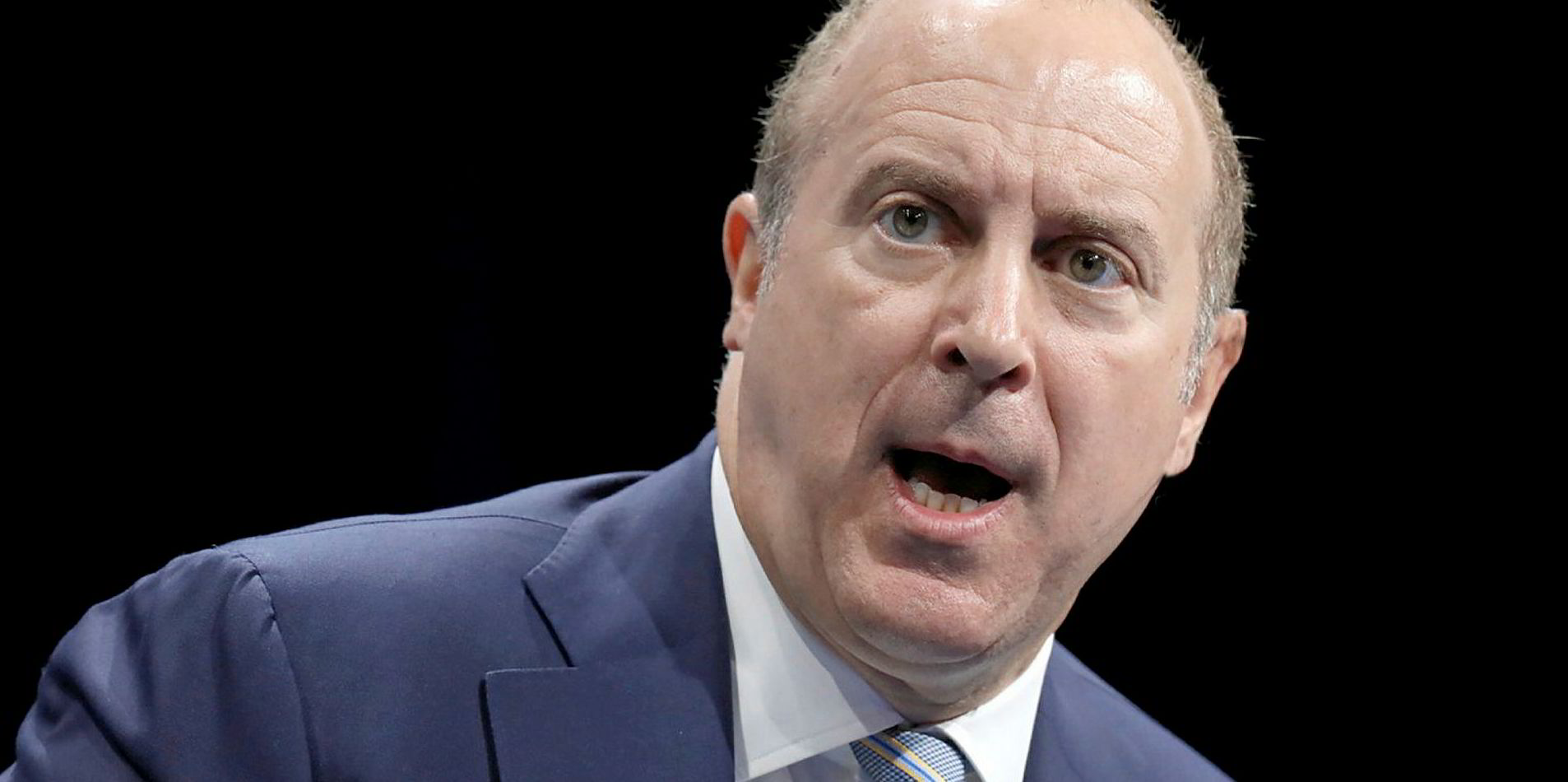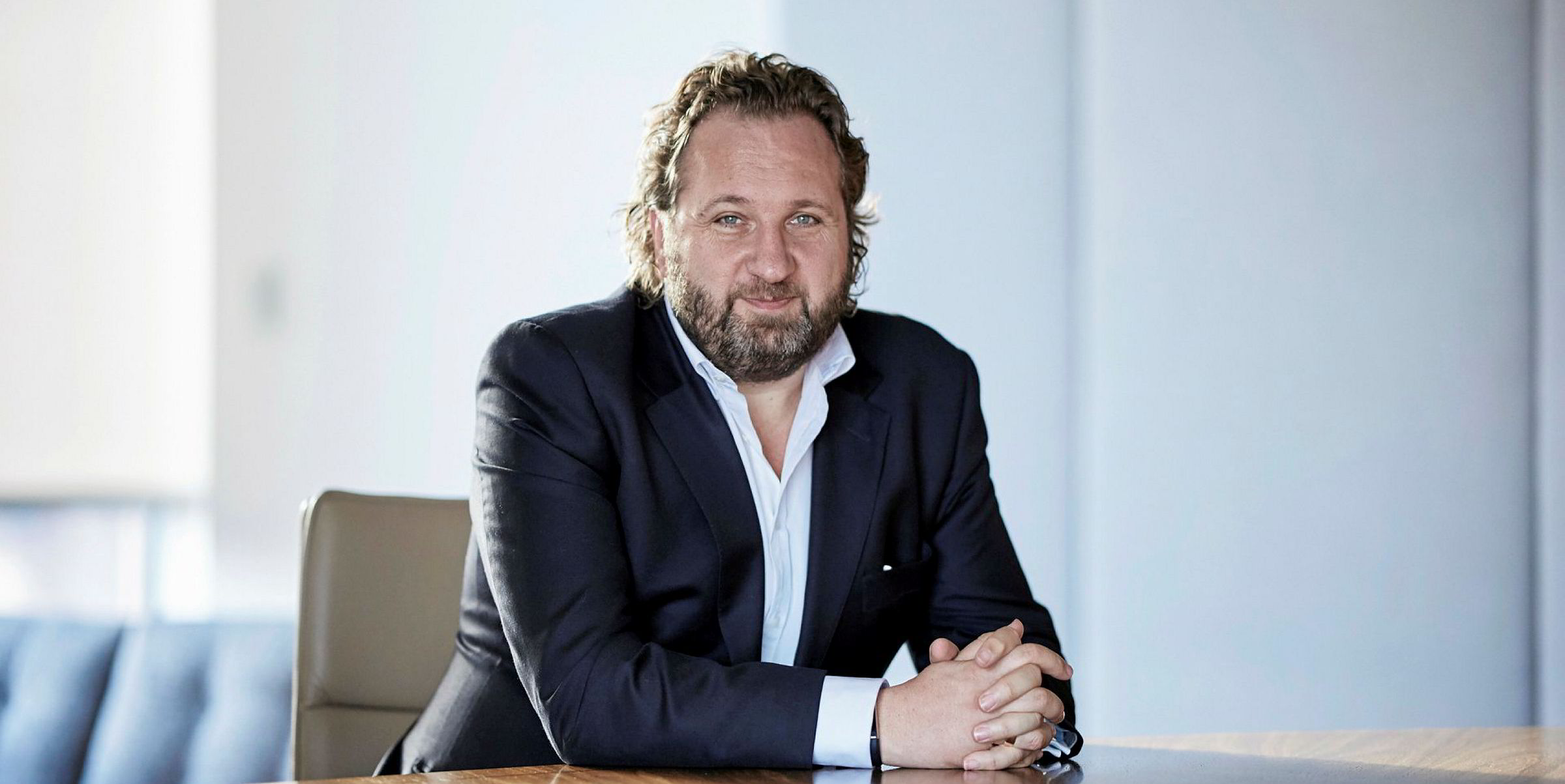An overhang can be good for shelter during a sudden rainstorm. But for shipping stocks, an overhang is generally considered a problem that can bring its own dark clouds.
The term is applied to the shareholding of a handful of familiar New York-listed shipowners. Their stock is held in large part by private equity firms that helped recapitalise them in the last market downturn.
Distress-oriented investors either injected equity directly into the companies or converted debt into substantial stock holdings, with the goal of eventually exiting the investment at a smart profit.
But the same investors learned that actually achieving the exit was not so easy, as shipping markets failed to recover as hoped. Thus their continued holdings in the companies, and thus the overhang.
Among the names with large private-equity shareholders are International Seaways, Genco Shipping & Trading, Star Bulk Carriers, Eagle Bulk Shipping and Torm.
Sometimes private owners also come with an overhang, as seen in the recent combination of Diamond S Shipping with a public spin-off of Capital Product Partners. Another example is the takeover of Oslo over-the-counter-traded Hafnia Tankers by BW Group.
Such structures were on the mind of Ardmore Shipping chief executive Anthony Gurnee in an interview this month, when he told TradeWinds he would not want to merge with “someone who is not public but who has a lot of institutional investors who are looking for an exit”.
He added: “That is a problem. Because all you’re really doing is creating an overhang on the stock, and Wall Street hates that.”
Reason investors are wary
Why are investors wary? The problem is simple, according to public company executives and equity analysts.

The presence of built-in sellers of the stock creates a cap on how well it can trade as markets improve, and then applies downward pressure on the shares when they decide to unload some of their stake.
“I think long-only funds and many other investors are reluctant to get into stocks with a private equity overhang, particularly when the private equity companies have representation on the owner’s board,” says one public company executive.
“Why do I want to buy stock in Acme Shipping when I can see that five of their largest shareholders are getting close to the end of their investment horizons and want to sell at the first opportunity?
Oaktree Capital Management controls 33.4% of Greek bulker owner Star Bulk and 64.4% of Danish products power Torm.
Oaktree and GoldenTree Asset Management together control about 54% of Stamford’s Eagle Bulk.
Centerbridge Partners and Strategic Value Partners between them have about 50% of New York-based bulker owner Genco.
“The first time the market goes up, they’ll sell and the stock won’t trade up. And yet on a bad day, the stock will still trade down. So why do I want to be involved with that?”
A second executive agrees.
“Investors fear it puts a cap on the share price. People think as soon as the stock trades close to [net asset value], these are natural sellers who will sell a bunch of shares into the market,” he says.
“A long-only fund like Fidelity could hold 15% in a stock forever and no one worries because they don’t have a natural reason to sell. But the private equity investors are seen as ready to sell at the first sign of spring, and that creates a brake on the ability of the stock to run up.”
Shipping equities have traded poorly across the board in recent years. Although there are many reasons for the trend, the overhang issue is seen as contributing in some cases.
One equity analyst points out that a company with a large concentration of shares in private equity also has a smaller free float of shares, cutting its trading liquidity.

“That’s another issue for investors, who already wish these companies had larger market capitalisations and greater liquidity,” he says. “In many cases, these owners actually function like even smaller companies because that float is so small.”
Still, occasionally there is good news on the overhang front.
In a client note this month, JP Morgan analyst Noah Parquette hailed International Seaways’ progress in reducing the concentration of private equity holding that is a legacy of its Chapter 11 bankruptcy restructuring from 2012 to 2014.
“One of the concerns among investors is the overhang from holders of the stock when it emerged from bankruptcy,” Parquette noted.
But since mid-2018, Paulson & Co has sold down its position from 3.5 million shares to 2.8 million, while BlueMountain Capital Management reduced its holding from 3.6 million shares to 2.4 million. In each case, this reduced the investor’s stake from around 13% to less than 10%.
In addition, public filings show that Paulson no longer has a representative on the Seaways board. Although Ty Wallach retains a board seat, he ceased to be a partner with Paulson last July, filings state.
Seaways executives did not immediately comment.






